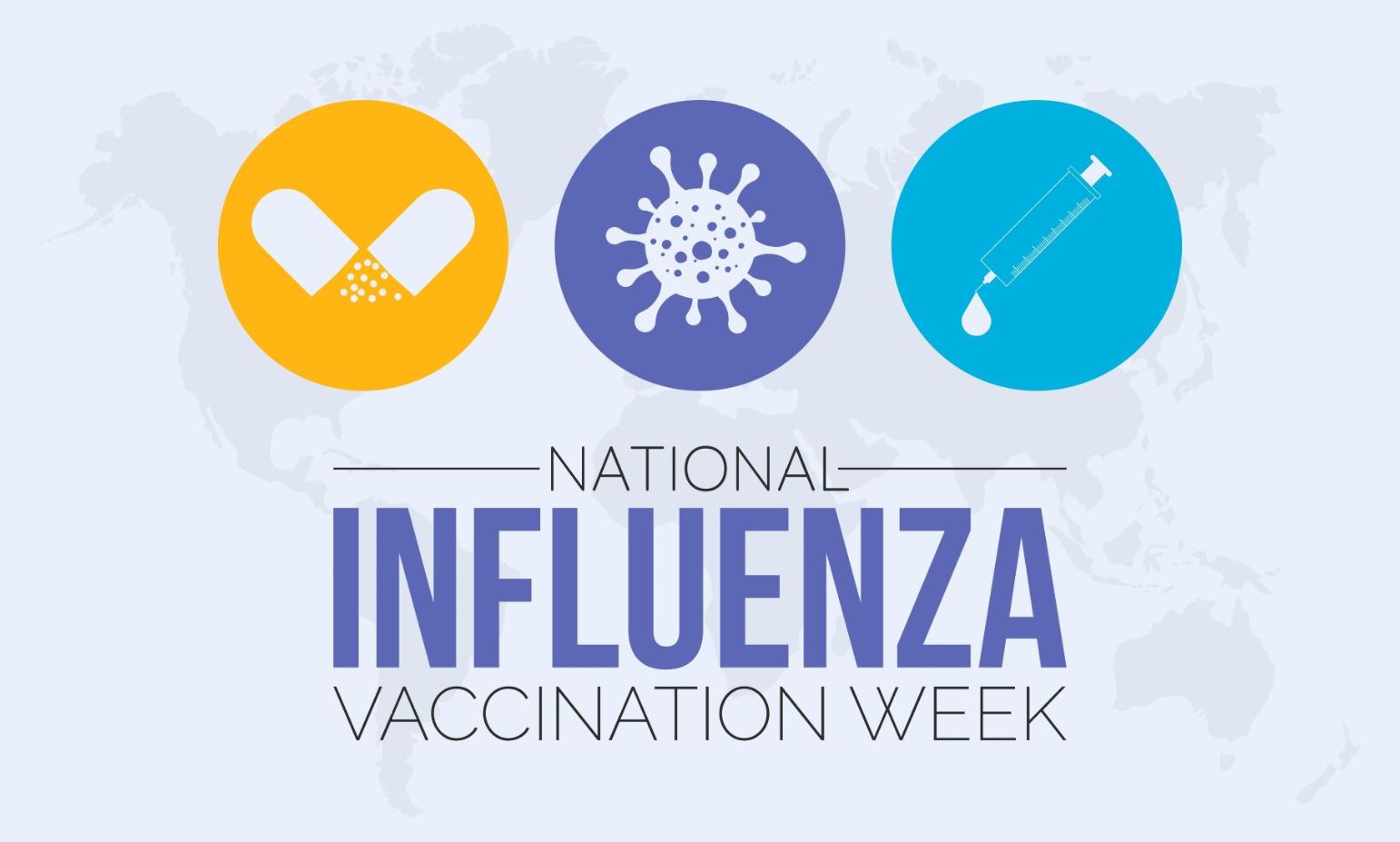Why is National Influenza Vaccination Week important?

December 5 – 9 is the CDC’s National Influenza Vaccination Week, an important reminder to us all that there’s still time to protect yourself against the flu by getting the influenza vaccine. While it may not be an exciting occasion that’s fun to celebrate, National Influenza Vaccination Week actually saves lives by encouraging people to get this critical annual vaccine.
If you are like many people who didn’t know when to get flu shot appointments scheduled, now is the time, especially since flu season arrived early this year. In fact, flu cases most often peak in February each year, so we still have a long flu season ahead, meaning any vaccine received now still offers plenty of protection.
Influenza is the ninth leading cause of death, killing tens of thousands of Americans every year, primarily due to complications experienced during infection, such as severe pneumonia. Those who are in fragile health, such as the elderly or those with compromised immune systems, are at greater risk of complications.
How does the flu vaccine work?
When taken as a flu shot, influenza vaccine works by introducing a “dead” version of the virus to stimulate the immune system into creating antibodies against the virus. The nasal spray form of the vaccine contains live virus that has been weakened so that it cannot infect the recipient.
What are the flu shot symptoms?
Though the flu vaccine cannot cause the flu, receiving the vaccine can cause temporary side effects as the immune system responds. Flu shot symptoms include flu-like symptoms such as body aches, headache, fever, and soreness at the injection site. Flu shot symptoms are typically mild and short-lived. Those who feel very sick or even test positive for the flu immediately after receiving the vaccine were likely infected before vaccination or before the vaccine had time to take effect.
How effective is the flu shot?
Every year, flu vaccines are formulated to protect you against the most likely strains of the virus. While is also prevents illness, vaccine effectiveness is measured by how well it decreases infections that are severe enough to go to the doctor. Flu shots usually reduce these doctor visits by 40% to 60%. It also significantly reduces hospital admissions and risk of death from influenza complications.
Sometimes the studies done by the CDC result in vaccines that protect against the wrong strains. This happens when different strains suddenly spread rapidly and become dominant unexpectedly. Certain strains are also more difficult to protect against.
How should I celebrate National Influenza Vaccine Week?
Getting the flu shot is a safe and effective way you can help slow and minimize the spread of influenza – and it’s the perfect way to celebrate National Influenza Vaccine Week, if you haven’t already received your flu shot. Some employers offer flu shot clinics at workplaces to make it easy to get one – or you can find them at many local pharmacies and convenience clinics, where you can simply walk in to receive the flu shot without an appointment.
Receiving your flu shot can help you stay healthy this flu season and avoid the type of flu complications that bring many people to Avail Hospital. However, if you should find yourself having difficulty breathing or are experiencing severe symptoms such as severe weakness, worsening of chronic conditions, dizziness, chest pain or lack of urination, come to Avail Hospital. We can treat your emergency flu symptoms to help get you on the road to recovery from flu.
